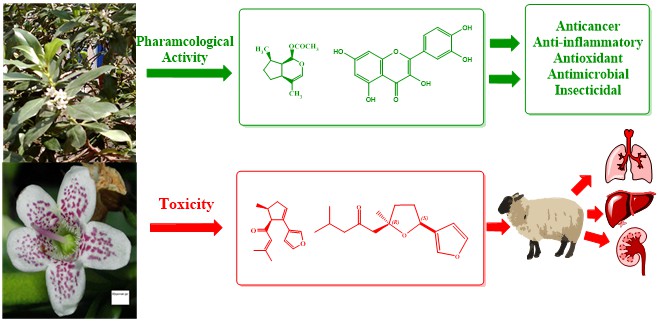JOURNAL 1833
Records of Natural Products
Year: 2021 Issue: 3 May-June
p.148 - 168
Viewed 2932 times.
GRAPHICAL ABSTRACT

ABSTRACT
Genus Myoporum family Myoporaceae, includes approximately 32 species of woody small trees or shrubs, most of them are native to Australia and surrounding territories. Only certain species have been thoroughly studied and rich in flavonoids, phenylethanoids, Phenylpropanoids, terpenoids, iridoids, essential oil, and trace alkaloids. The essential oils are characterized by sesquiterpenes type components, either in ketone or alcoholic forms usually combined to a furanoid moiety. Myoporum spp. have been utilized in folk medicine for treatment of various diseases and were used as antidermatitis, antibacterial, antipyretic, anti-pulpitis, antipsychotic, anti-inflammatory, detoxicant, and others. Despite all these benefits, Myoporum spp. must be cautiously employed due to their potential toxicities, which arise from the presence of furanosesquiterpenoid contents, particularly in their essential oil. The toxicity influences liver and can extend to kidney and lung causing injury. The present review aims to explore the phytochemistry, beneficial uses and the toxic potentials of Myoporum spp.
KEYWORDS- Myoporum
- Myoporaceae
- secondary metabolites
- furanosesquiterpenoids
- biological activities
- toxicity